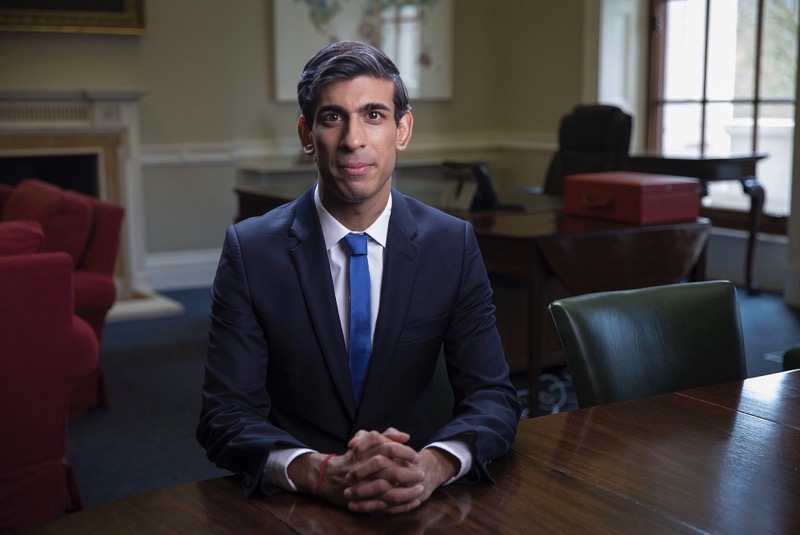The notion of a lame duck leader is most commonly associated with the United States. The term refers to a president who will soon be succeeded in office – a situation that most commonly applies at the end of a second (and final) term, before the president has left office but after their successor as been chosen by the electorate.
Since US presidential elections are held in November but the new leader doesn’t assume office until the following January, there is a period in which the president can struggle to pass legislation. This might be due to resistance from a congress running down the clock or because salience is shifting from their programme to that of their successor.
The UK system is different, but Rishi Sunak also appears to be struggling to get much done. The parliamentary timetable finished unusually early on a number of days in late June and early July. The government, in the words of one opposition MP, “doesn’t really have a programme”.
And with an election guaranteed to take place by the end of January 2025, the sense that the clock is running down on a government that has reached the end of its term is hard to avoid. So might Sunak also be called a lame duck?
Lame duck in Westminster
There are a number of factors that make it difficult for Sunak to enact a wide-ranging legislative agenda. The Conservative parliamentary party is highly pluralistic, which makes it difficult to design and pass legislation at the best of times.
The differences in perspective and philosophies within the party have been laid bare by recent turmoil, including the lack of consensus over who should lead after the downfall of Boris Johnson and the chaos of Liz Truss’s brief tenure at the helm.
The last election in 2019 was fought and won almost exclusively on the issue of Brexit, but that issue no longer dominates the political agenda. The party is now bogged down in its differences over climate change and online regulations.
The public can see that there is an urgent need for houses to be built, yet MPs appear to be against that happening in their own constituencies, causing even more disagreement about the path forward.
A strong leader might be able to paper over the cracks and push ahead but Sunak has made concession after concession to his rebelling backbench MPs, particularly on the right of the party.
While the reasons for the divisions are debatable, the government’s lack of progress, even by its own standards, is somewhat clearer cut. Sunak outlined five priorities at the start of the year – including “stopping the boats” and reducing NHS waiting times – and there is little room for optimism that these will be met.
Voices both within and outside the party have lamented the shift towards fighting “culture wars” rather than producing policy. The idea seems to be to ride an “us” against “them” narrative into the next election campaign.
But there is little to suggest such tactics are cutting through with the public. The use of such a distraction tactic adds to the evidence that the Conservative party currently lacks a holistic programme for government.
Meanwhile, Sunak’s personal polling reached -40% this summer while the Conservatives trail Labour by some 20 percentage points in the latest voting intention polls. As the election approaches, polling of this kind could drive attention towards Labour and its proposals for government.
There’s still time
All this said, a legislative block does not have to be quite so terminal for a struggling leader in the UK as it might be in the US.
Sunak still has a working majority of 62 seats in parliament so better party management would go a long way to helping his overall position. And unlike a US president who has served two full terms, Sunak can (and clearly intends to) fight the next election. He very much still has skin in the game and an incentive to perform better than he has so far.
Nor is the opposition currently offering anything radically different. Attention has not (yet) shifted from Sunak to Keir Starmer and the latter is giving Sunak plenty of room to shape policy through his willingness to “wait and see” on key policies, while coming under fire for diluting or abandoning previous pledges he made to secure the Labour leadership.
And while the merits of the culture war tactic are questionable, it is evidence that the government has no intention of going down without a fight. Sunak has gambled on promoting controversial figures such as the Conservative party’s deputy chairman Lee Anderson to help orchestrate that election campaign, demonstrating a collective desire to “move on” from his predecessors and put distance between his and previous Conservative governments.
Even so, without a clear programme, and measurable success, Sunak may be engulfed by wider circumstances which further limit his policy options. For example, a deteriorating economic situation might suggest that there exists no prospect of large-scale tax cuts or spending giveaways prior to the election.
Even if the public were to forgive him for failing to meet his five pledges, a lack of progress on them in the very near future could leave him without any room for manoeuvre when the official election campaign kicks into gear.
This story was first published in The Conversation.
-30-
Copyright©Madras Courier, All Rights Reserved. You may share using our article tools. Please don't cut articles from madrascourier.com and redistribute by email, post to the web, mobile phone or social media.Please send in your feed back and comments to editor@madrascourier.com











